6 Types of Rental Properties: Which is Best for You as a Renter?

Looking for a new place to call home? You have options. Several types of rental properties are available, depending on what you need and what you want.
To decide which type of rental property is best for you, consider how much space you need to accommodate everyone who lives with you. Next, think about your budget and what amenities you want. Here's a look at six types of rental properties and the pros and cons of each.
1. Single-family home
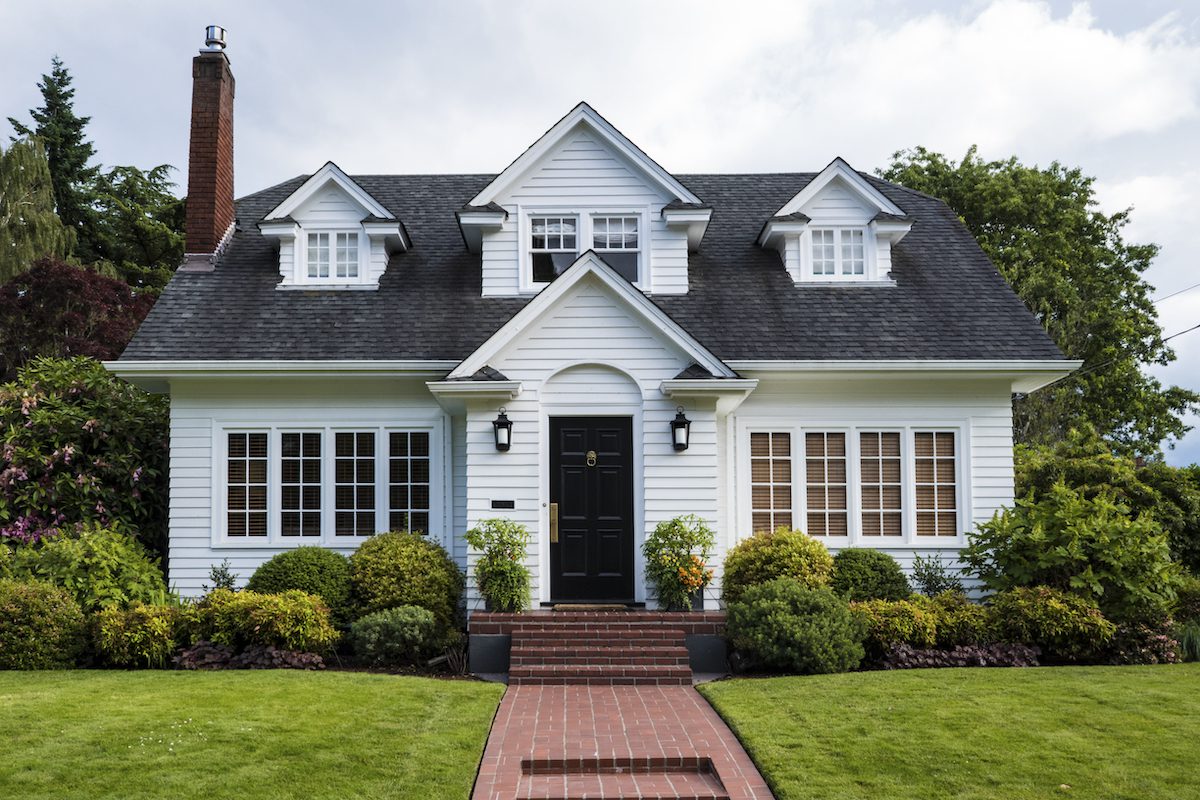
If space and privacy are your priorities, renting a single-family home is your best option. It's a standalone residence that functions as its own unit. These homes feature direct access to the street, don't share walls with other houses and usually sit on a plot of land.
There are several advantages to renting a single-family home:
- Privacy: Because the homes are typically well spaced out and don't share a wall with a neighbor, these rentals are quieter and offer more privacy. Plus, you don't have to use a communal elevator or hallway to access the home.
- Space: You'll likely just have more room in a house, including more bedrooms, a larger kitchen and a roomy living area. Single-family homes also have front and backyards, so you can enjoy your favorite activities. The outdoor spaces make renting a house ideal for pet owners.
- Parking: If you rent a single-family home, you'll usually have a driveway and possibly a carport or garage to park your vehicle. Being able to park so close to your front door offers safety. You won't have to park in a large lot or on a side street and walk a small distance to your home.
The extra room and quieter living may sound great, but there are a few downsides to renting a single-family home:
- Chores: Renting a house may come with extra responsibilities, such as more maintenance and the possibility of yard work.
- Location: Single-family homes are often located in suburban areas, which are usually quieter, but further away from downtown hubs. That could mean a longer commute to work or to go shopping or visit your favorite restaurants.
- Cost: Though it depends on the area, renting a single-family home is typically more expensive than other types of rental properties. And, since houses are usually larger than other rentals, utility bills are higher.
2. Low-rise apartment building

A low-rise apartment building features one to four floors filled with units. Renting an apartment in a low-rise building gives you the benefit of apartment living but with a little quieter. The pros of renting an apartment in a smaller building include:
- Privacy: Fewer units mean fewer neighbors. Smaller apartment buildings offer more privacy and quieter living than larger apartment communities.
- Parking: Low-rise apartment buildings may offer parking closer to the front door, so you won't have to lug your groceries across a big parking lot to get home.
- Security: Small apartment buildings often feature front doors that only residents can access with a key or code. That keeps anyone unwelcome from getting in.
- Low maintenance: A smaller space cuts down on the time you'll spend doing chores. Plus, there's no yard to maintain.
Renting a unit in a low-rise apartment building comes with a few cons, too:
- Noise: Being so close to your neighbors might mean you hear everything they do, while they're in the hallway or through the walls you share.
- Less space: Apartments are usually less roomy than houses, which means fewer or smaller bedrooms and living spaces.
- Rules and restrictions: Low-rise apartment buildings may have several limitations regarding things like pets, visitors and noise.
3. Large apartment community
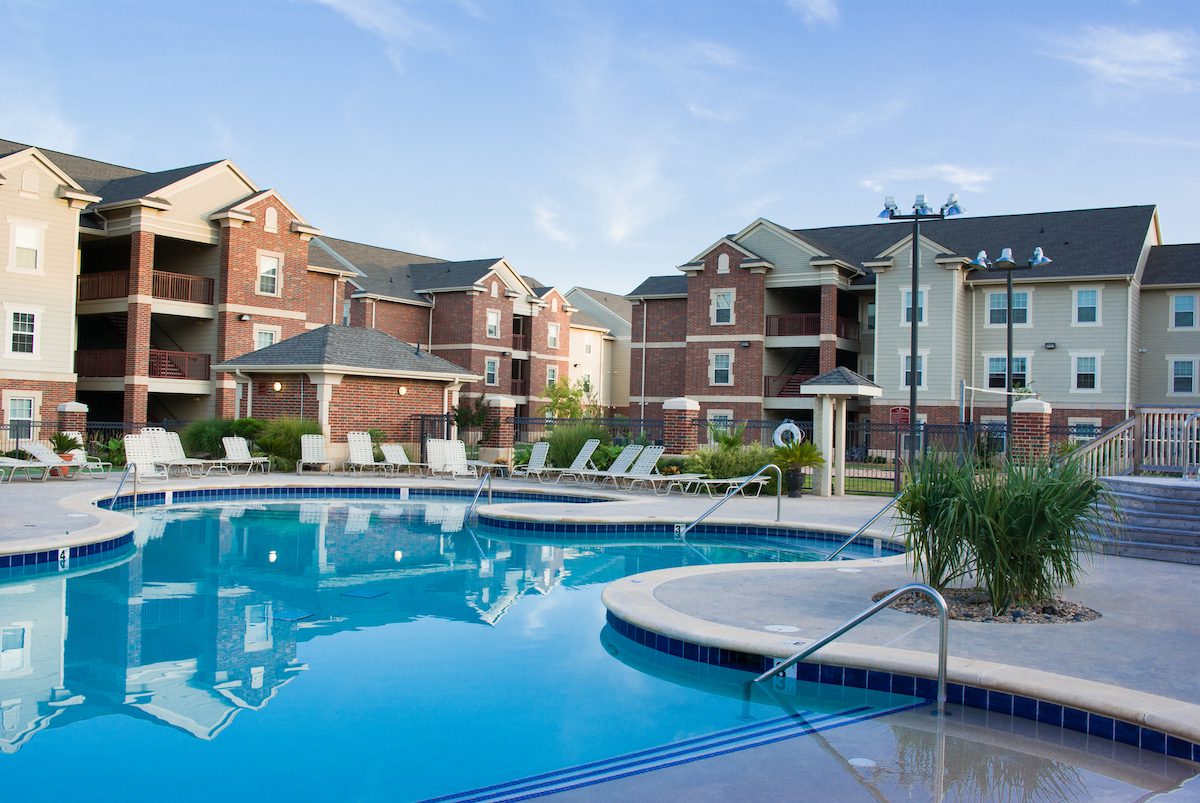
Larger apartment communities — whether a high-rise building or vast apartment complex — are another type of rental property that offers several benefits and drawbacks.
Some of the advantages of a large apartment include:
- Amenities: You may have access to features like a pool, on-site gym or public green space when you rent an apartment in a large community. These amenities could save you the cost of a gym membership or other expenses.
- Low maintenance: Renting an apartment is generally a low-maintenance experience. You'll have to clean your space, but you won't handle landscaping or caring for common areas. Usually, a caretaker is on-site, too.
- Less expensive: Renting an apartment is usually cheaper than renting a house, depending on the location. Large apartment communities also might include utilities like water or Wi-Fi in the rent price.
Living in an apartment isn't for everyone, though. Here are a few downsides:
- Less space: With apartments being smaller, it's hard to get all the space you need. Closets and storage space are usually lacking, as well.
- Parking and safety: You most likely won't have a designated parking space that's close to your front door. Instead, you'll park in a large lot or parking garage, which might pose some safety risks, and you'll walk a pretty long way to get home.
- Less privacy: Living so close to so many people means you'll have to sacrifice privacy. You may run into your neighbors in hallways or on staircases. And, because you share walls, floors and ceilings, there might be extra noise.
4. Condo
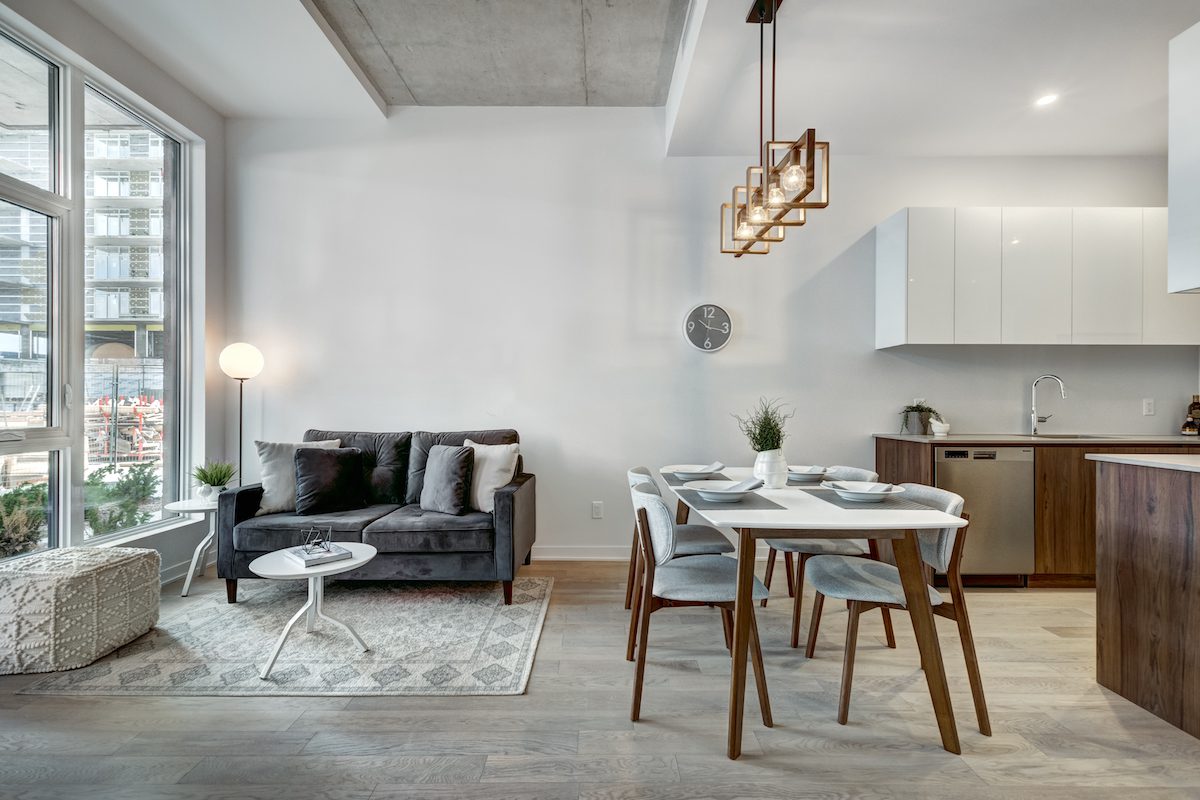
A condo is similar to an apartment in that it's a unit within a larger building or complex. But, it's also like a house in that it's typically an individual piece of real estate with a specific owner. You might be renting directly from the property owner, rather than a property manager.
There are several benefits to renting a condo, including:
- Amenities: Condo communities might include pools, gyms, covered parking and other on-site amenities. The units are likely outfitted with top-of-the-line appliances and fixtures.
- Flexibility: If you're dealing directly with the property owner to rent the condo, you might have some room to negotiate the rent price and lease terms. It never hurts to ask!
- Better relationship with the property owner: Dealing with a landlord with only one (or maybe two) properties has its advantages. By building a closer relationship with the owner, you'll benefit with negotiating repairs, upgrades and lease renewal terms.
Condos come with a few unique aspects, which pose drawbacks:
- Fees: Many condos have homeowners associations (HOAs), which handle the upkeep on pools, landscaping and other maintenance. But, this comes at a price. When you rent a condo, you may have to pay HOA fees, which could be $200 to $300 a month.
- Restrictions: HOAs also sometimes place restrictions on homeowners or renters, such as limiting the number of guests you can have at a time, the size of pets or the items you can place on your patio.
- Less legal protection: Condo leases are not as stable as leases for other types of rental property. Condo owners may only rent the property for a set time period and might not renew a lease after a year, for example.
5. Townhouse
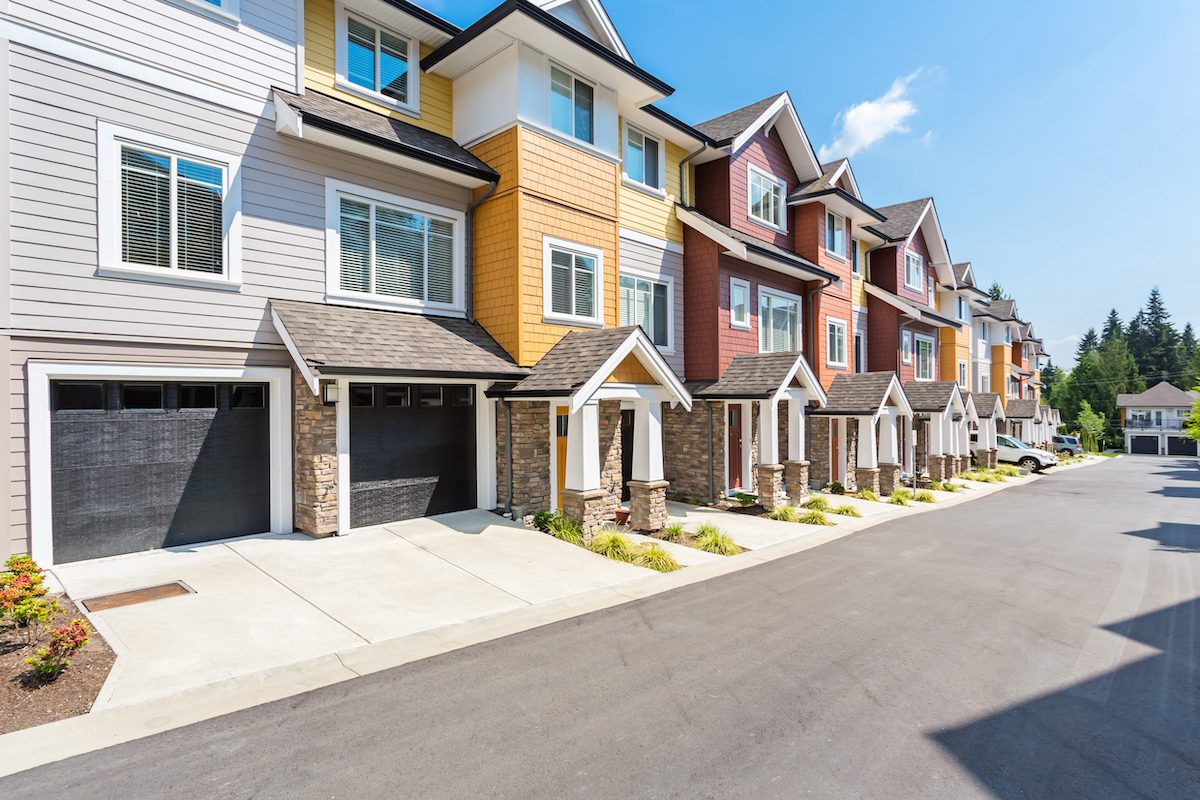
A townhouse, or townhome, shares at least one wall with a neighbor, but they're typically bigger than an apartment. In some ways, renting a townhouse combines the advantages of a single-family home and an apartment.
Here are the benefits of renting a townhouse:
- Amenities: Townhomes are often located in communities with amenities like a pool or clubhouse. Many are also in gated communities with added security.
- Low maintenance: Even though you'll probably have a yard, you won't have to worry about yard work. Many communities are part of HOAs, which have rules for upkeep on the home's exterior and handle the maintenance.
- More space: Townhouses are usually two-story and as large as a single-family home, so you'll most likely get all the space you need. The perk of having a yard is great for pet owners.
Renting a townhouse isn't for everyone, however. Here are a few downsides:
- Lack of privacy: Sharing a wall with neighbors can make living in a townhouse noisy. And, since the units are so close together, you won't have as much privacy, especially when hanging out outdoors.
- Extra costs: Besides rent, living in a townhome is expensive. You might have HOA fees, which cover maintenance and amenities but can run upwards of $200 a month. Utilities are higher, too, because of the size of the unit.
- Rules and restrictions: HOA communities place restrictions on renters and homeowners, such as in hosting gatherings and decorating the home's exterior for the holidays.
6. Duplex
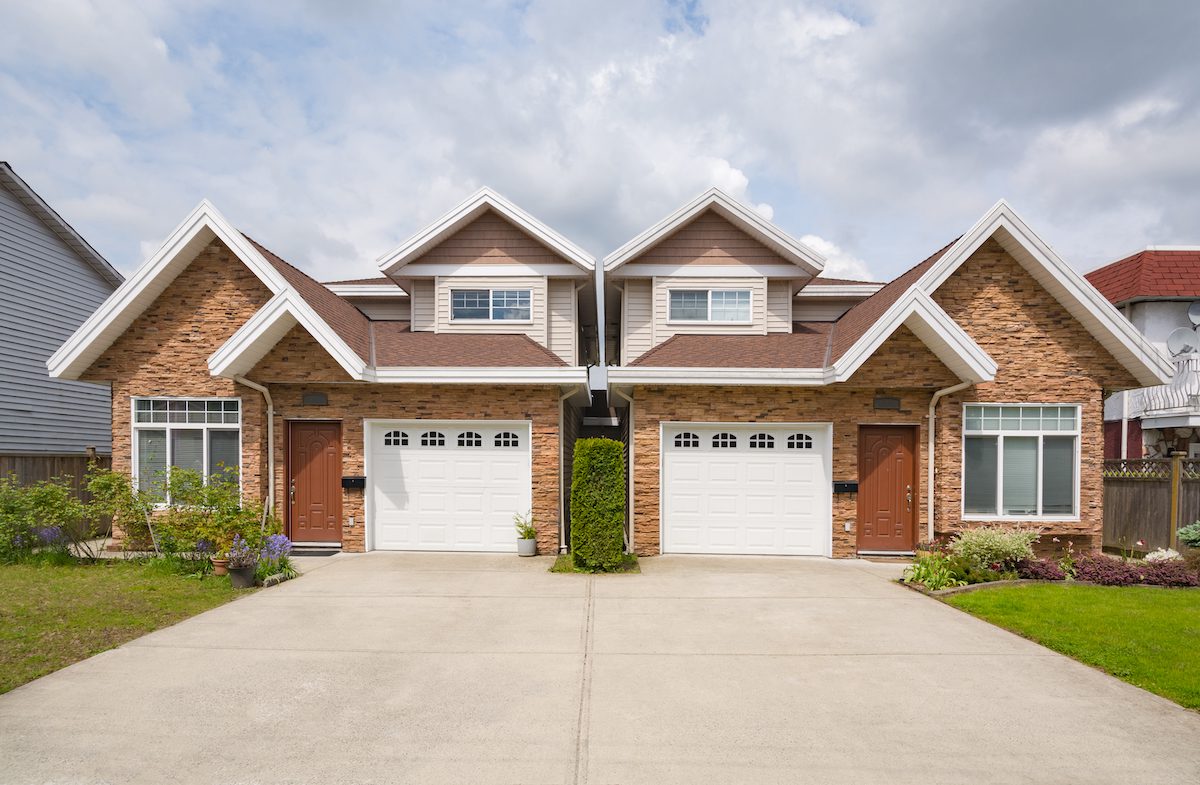
Duplexes are multi-family homes with two units in the building. Duplex units have their own entrances, but the units share one wall. Renting a duplex has its advantages. For instance, if you're lucky enough to have a great neighbor, the two of you can look out for each other.
Some pros of living in a duplex include:
- Privacy: Unlike apartment communities, having only one neighbor with a shared wall means much more privacy.
- Outdoor spaces: Duplexes usually feature front and backyards for you to enjoy. This offers plenty of space for kids and pets to play and to host family barbecues.
- Shared costs: Depending on the setup, you and your neighbor may share some of the costs for things like maintenance or HOA fees.
The downsides of renting a duplex include:
- The possibility of a bad neighbor: If that one neighbor is noisy or messy, it could be a nuisance. And, you'll have to talk to the property owner or manager.
- Shared spaces: In some cases, duplexes might share a driveway or yard. If your neighbor abuses these spaces, it could create conflict and generally be a nightmare to deal with.
- More responsibility: Duplexes are typically privately owned, so the property owner may require tenants to handle general tasks, like yard work or keeping the exterior tidy.
How to decide which type of rental property is best for you
Space, privacy and budget are all things to think about when choosing the type of rental property that's best suited for you. To find the best rental property, search on Rentals.com, where you can narrow properties by location, the number of bedrooms and types of amenities.
